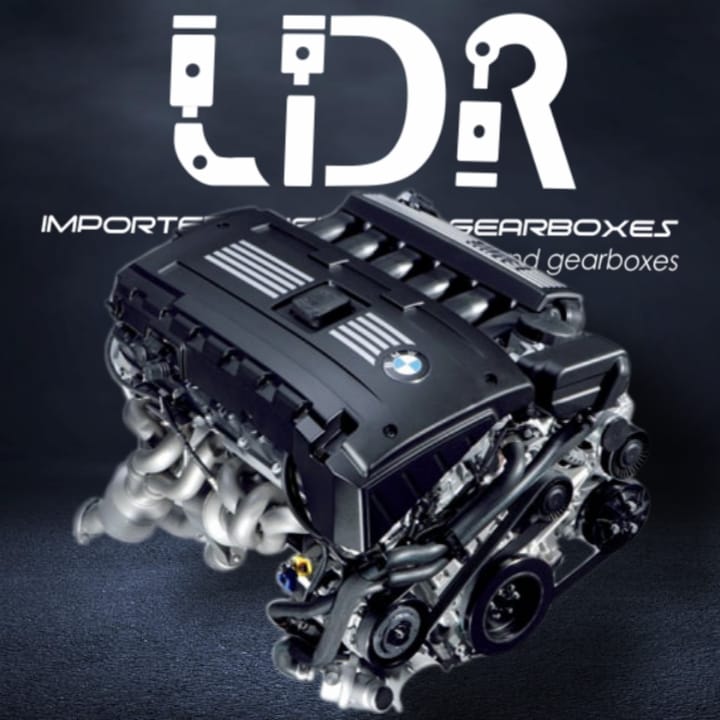BMW 318ti Review: What Makes This Version Stand Out
BMW 318ti Review: What Makes This Version Stand Out
Blog Article
Vital Considerations for Choosing the Ideal Engine for Your Needs
In the world of selecting the ideal engine to satisfy your requirements, a number of essential variables demand careful consideration to make certain ideal efficiency and effectiveness. From the nuanced equilibrium in between power and performance to the often-overlooked elements of upkeep and service needs, each facet plays a crucial duty in determining one of the most appropriate engine for your details needs. As the intricacy of engine modern technologies proceeds to progress, critical the most fitting alternative necessitates a deep understanding of the interplay in between different considerations. By checking out the detailed web of aspects that underpin this decision-making procedure, a more clear course emerges towards choosing an engine that not only satisfies yet surpasses your expectations.
Power and Performance
When evaluating engines for optimal performance, it is vital to focus on both power output and performance. Efficiency refers to exactly how well the engine transforms gas into functional power. By carefully assessing both power and performance, you can pick an engine that delivers ideal efficiency and fulfills your needs successfully.
Fuel Performance and Economy
In the realm of engine choice, the factor to consider of gas efficiency and economy holds critical value. Gas performance describes the engine's capacity to transform gas right into power with marginal waste, straight impacting operating expense and environmental sustainability. bmw 318ti. When choosing an engine, assessing its fuel economic climate is critical to establish long-term savings and ecological impact. Engines with higher gas efficiency not only decrease gas costs however likewise decrease carbon emissions, adding to a greener operation.

Compatibility and Application
Taking into consideration the fuel efficiency and economic situation of an engine, the next essential element to address is its compatibility and application within certain operational contexts. Compatibility describes how well the engine integrates with the total system or devices it powers. It entails elements such as physical measurements, mounting alternatives, electrical user interfaces, and control systems. Guaranteeing compatibility is important to stop issues such as overheating, resonances, or power imbalances (bmw 318ti).
Different engines are designed for particular functions, whether it be industrial machinery, marine vessels, automobiles, or power generators. Understanding the intended application allows for the option of an engine that can supply the needed power outcome, torque, and functional features.
Upkeep and Service Requirements
Upkeep and solution requirements play a critical role in making certain the longevity and optimum performance of an engine. Regular maintenance is necessary to stop malfunctions, expand the lifespan of the engine, and preserve its effectiveness. When picking an engine, it is important to consider the producer's suggested upkeep timetable and the schedule of service centers or qualified specialists.
Aspects such as the regularity of oil modifications, filter substitutes, and total examinations can significantly impact the engine's performance. Some engines might call for even more constant maintenance based upon their layout and use, while others might have longer periods between maintenance checks. It is important to comply with these service requirements to avoid pricey fixings and unanticipated downtime.
Price and Budget Plan Considerations
Spending plan restrictions frequently play a considerable function in the decision-making procedure when choosing an engine for a particular application. When taking into consideration the expense and budget effects of selecting an engine, it is vital to examine not only the first purchase price yet additionally the long-term expenditures linked with maintenance, gas consumption, and possible upgrades or repair services. It is essential to strike an equilibrium between the ahead of time expense of the blog engine and its overall lifecycle expenses to ensure that the picked engine remains monetarily sustainable throughout its functional life-span.
Aspects such as fuel integrity, effectiveness, and toughness can directly influence the overall price of ownership of an engine. While an extra pricey engine might have higher ahead of time expenses, it could possibly result in lower upkeep and fuel costs over time, thus offering much better value in the lengthy run.
Conclusion

Fuel performance refers to the engine's capability to transform gas into energy with marginal waste, straight impacting operating expenses and ecological sustainability.Factors influencing fuel performance consist of engine design, combustion effectiveness, and total efficiency optimization. Additionally, choosing the proper fuel type and grade as suggested by the navigate to this site engine supplier can further enhance efficiency and extend engine life expectancy.
Engines with excellent utility features and readily available parts can minimize upkeep expenses and decrease the time the engine is out of procedure - bmw 318ti. It is vital to strike an equilibrium in between the upfront cost of the go to the website engine and its overall lifecycle expenses to make sure that the selected engine stays economically sustainable throughout its functional life-span
Report this page